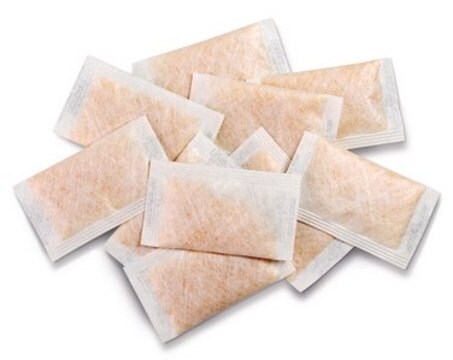About This Item
Recommended Products
Quality Level
form
beads
potency
>5000 mg/kg LD50, skin (Rabbit)
surface area
700 m2/g
loss
≤2% loss on drying, 180°C
particle size
2-5 mm
pore size
2.0-2.5 nm
pH
5-8 (20 °C, 100 g/L in H2O, slurry)
bp
2230 °C
mp
>1600 °C
bulk density
750‑800 kg/m3
storage temp.
no temp limit
SMILES string
O=[Si]=O
InChI
1S/O2Si/c1-3-2
InChI key
VYPSYNLAJGMNEJ-UHFFFAOYSA-N
Looking for similar products? Visit Product Comparison Guide
Application
- Chromatographic Applications: Silica gel is widely used as a stationary phase in chromatographic techniques for separating various chemical compounds. Innovations in silica gel modification, such as pentabromobenzyl group-modified silica gel, have enhanced the separation efficiency for metabolites like nicotinamide. This application is critical for pharmaceutical analysis and metabolomics studies, providing high precision and accuracy in quantifying biologically relevant molecules (Ozaki et al., Analytical Biochemistry, 2022).
- Environmental Pollutant Detection: Silica gel is employed in creating molecularly imprinted polymers (MIPs) that selectively recognize and bind environmental pollutants. A notable application involves embedding quantum dots in molecularly imprinted silica gel to detect aminoimidazo-azaarenes (AIAs) in food samples. This method offers high selectivity and sensitivity, making it a powerful tool for food safety and environmental monitoring (Qiao et al., Current Analytical Chemistry, 2021).
- Heavy Metal Removal from Water: Silica gel doped with specific reagents is used for the adsorption and removal of heavy metals from water samples. Recent research highlights the use of sol-gel silica doped with 3-(2-naphthoyl)-1,1-dibutylselenourea for the efficient removal of Pb(II) and Zn(II) from aqueous solutions. This application is essential for environmental remediation and ensuring water safety, showcasing the versatility and effectiveness of silica gel in addressing environmental pollutants (Mehmood et al., International Journal of Environmental Analytical Chemistry, 2022).
Analysis Note
Loss on drying (180 °C): ≤ 2 %
Water absorption capacity (24 hrs.,80 % relative humidity): ≥ 27 %
Storage Class Code
13 - Non Combustible Solids
WGK
nwg
Flash Point(F)
Not applicable
Flash Point(C)
Not applicable
Certificates of Analysis (COA)
Search for Certificates of Analysis (COA) by entering the products Lot/Batch Number. Lot and Batch Numbers can be found on a product’s label following the words ‘Lot’ or ‘Batch’.
Already Own This Product?
Find documentation for the products that you have recently purchased in the Document Library.
Customers Also Viewed
Our team of scientists has experience in all areas of research including Life Science, Material Science, Chemical Synthesis, Chromatography, Analytical and many others.
Contact Technical Service


